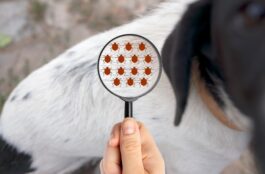
If you’ve got a senior four-legged friend at home, you know that they need a little extra love and care as they get on in years. Aging in pets is akin to aging in humans; with the wisdom and companionship they’ve given you, they also might accumulate a few more health issues that require attention. Let’s face it, they can’t tell you when they’re feeling off.
That’s why it’s crucial to recognize the signs that your vulnerable companion might need a wellness exam. Stick around as we walk through some of the telltale indicators that it’s time for a health check-up for your precious pet.
Behavior Changes That Call for a Vet Visit
Our beloved pets can’t speak up when they’re not feeling well. So, paying close attention to their behavior can give us invaluable clues. Here are a couple of flags that should get you dialing the vet’s number.
-
Changes in Activity Levels: If your once playful pup is spending more time napping than fetching, or your curious cat seems less interested in the world outside the window, it might be time to take action.
-
Shifts in Behavior: Maybe your dog’s greeting isn’t as enthusiastic, or your cat hides more often. These could signify that they’re dealing with discomfort or pain.
Physical Signs That Scream for Attention
As our pets age, they sometimes develop physical symptoms that are hard to miss. Keep a lookout for these:
-
Lumps and bumps: Any new growths on your pet’s body should be checked out by a professional. Some may be harmless, but others could be serious.
-
Dental Woes: Bad breath or difficulty eating can hint at dental issues. A cat and dog dentist will help keep those pearly whites in tip-top shape.
Eating and Drinking Habits
Has your pet turned into a picky eater or started drinking water like it’s going out of style? These might be signs of underlying health issues that need expert evaluation.
Changes in Senior Pets that Necessitate a Vet Check-Up
Senior pets have a special place in our hearts, and sometimes, their needs can change almost overnight. Here’s what you should keep an eye on:
-
Variations in Weight: Sudden weight loss or gain isn’t normal and might be a symptom of metabolic disorders or other health problems.
-
Difficulty in Mobility: Arthritis is common in older pets. If your furry friend is showing reluctance to move, jump, or play, it’s worth discussing with your vet.
Regular Wellness Exams: How Often and What to Expect
For senior pets, regular check-ups are more important than ever. At least once a year is standard, but some might benefit from more frequent visits. During these check-ups, your vet will usually cover the essentials:
-
A thorough physical examination to assess general health.
-
Lab tests to check organ function and look for signs of disease.
-
Any necessary vaccines to keep preventable diseases at bay.
Why Early Detection Matters
As we’ve touched on, our senior pets can’t tell us when they’re in pain or feeling under the weather. Spotting signs early and getting them in for a wellness exam can make all the difference. Regular check-ups and tests can detect problems before they become more serious, making treatment more likely to be successful – and potentially less costly for you.
For instance, your dog needs to receive proper care as it ages. That’s why caring for senior dogs in Statesboro includes regular wellness exams tailored to their specific needs, ensuring they live their golden years with the best quality of life possible.
When Other Services Might Be Necessary
Sometimes, a wellness exam will reveal that your pet needs additional services. Your vet might suggest special dietary recommendations for optimum health or even prescribe medication. When those types of situations arise, it’s comforting to have a veterinary pharmacy you can trust to provide the right treatment for your pet’s specific needs.
Home Care Tips Between Vet Visits
Partnering with your vet for regular wellness exams is key, but there’s plenty you can do between visits to keep your senior pet feeling great:
-
Monitor their diet to ensure they’re getting the nutrition they need for their age.
-
Engage in regular, gentle exercise to help maintain their mobility and weight.
-
Make their living space comfortable and easily accessible to reduce stress on aging joints.
Final Thoughts
Remember that being vigilant about wellness exams and attuned to any changes in your senior pet’s behavior or health can have a big impact on their quality of life. Your four-legged friend depends on you to be their health advocate. Embrace that role with love – after all, that’s what they’ve been doing for you their entire lives. So, keep your eyes peeled for those signs and stay connected with your trusted vet. Together, we can give our senior pets the golden years they deserve.


